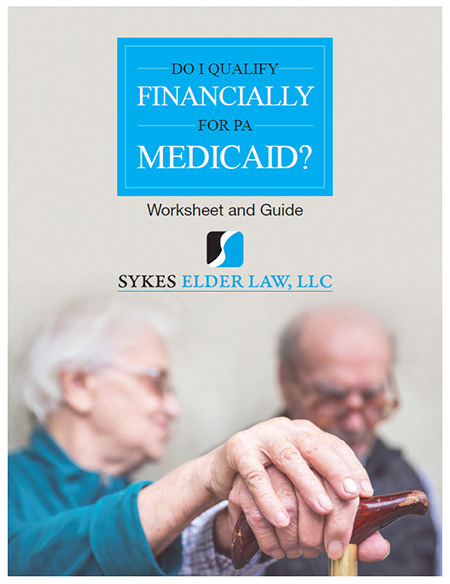I’m frequently asked, “What is Medicaid, and how does a person qualify?” It’s an issue I deal with constantly as an elder law attorney in Pennsylvania.
In this post I’ll give a quick introduction to this complex program, focusing mainly on basic eligibility requirements in Pennsylvania.
What is Medicaid?
It’s easy to confuse Medicaid with Medicare, but they are two different programs. Medicare is a health insurance program while Medicaid is a program that pays certain health care costs based on a person’s need and eligibility.
Medicaid provides medical assistance for the aged, blind, or disabled who meet certain financial requirements. Established by the Social Security Act of 1965, the program is administered jointly by the federal and state governments.
The Centers for Medicare and Medicaid Services (CMS), formerly the Health Care Financing Administration (HCFA), administers the program at the federal level, and establishes minimum requirements and general guidelines. In Pennsylvania, the Department of Public Welfare (DPW) administers Medicaid under Pennsylvania’s Medical Assistance program. The County Assistance Office administers the program at the local county level.
Qualifying for Medicaid benefits
Medicaid provides a number of programs for different recipients, including payment for long term care in a nursing facility. I’ll focus on that program in this post, since it is the one I deal with most often as an elder law attorney. (The same basic rules also apply to community-based long term care through Pennsylvania’s Waiver Program, which allows certain recipients to receive care at home.)
To qualify for Medical Assistance in Pennsylvania, one must meet the following criteria:
1. U.S. Citizen or resident alien
2. Pennsylvania resident
3. Aged (65 or over), disabled, or blind
4. Medically eligible, meaning that the person requires nursing facility care
5. Financially eligible, meaning that countable resources do not exceed $2,400. However, note that under a DPW Operations Memorandum dated 11/4/03, an applicant with an income below 300% of the Federal Benefit Rate can qualify when assets are below $8,000. (Currently, that income figure is $2,313 per month. For the latest Medicaid eligibility figures, visit our Medicaid Current Numbers page.)
If the applicant is married, the spouse will be entitled to keep some of the couple’s resources, and perhaps receive some of the applicant’s income. I’ll explain the rules for married couples in later posts.





